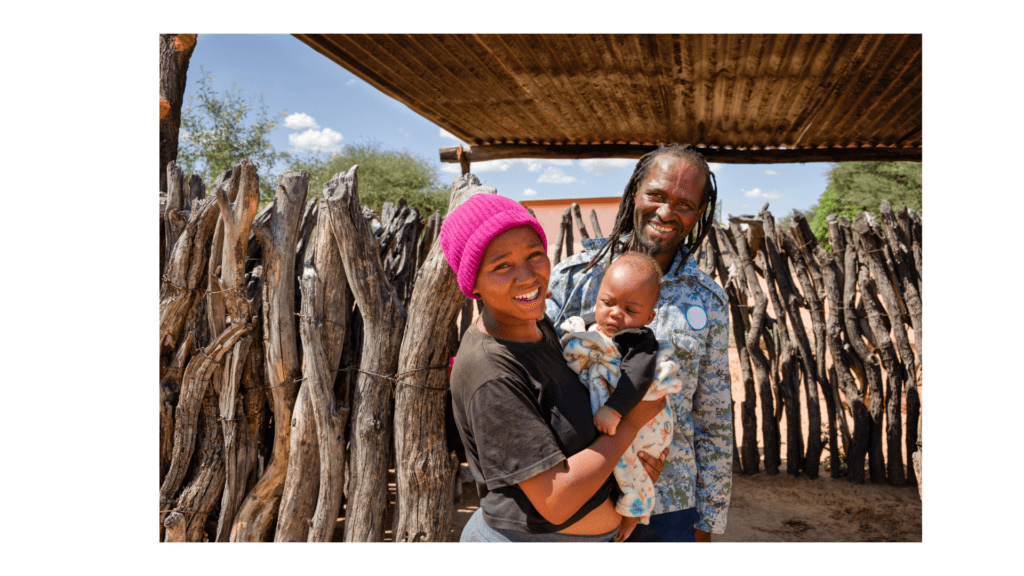
Transforming Childcare in Kenya: A Catalyst for Women’s Economic Growth
Media Contact
In Nairobi, Vihiga, and Kisumu counties, childcare services are a vital part of societal infrastructure that supports children’s developm ent and women’s economic empowerment. Despite this, deep-seated misconceptions and structural inadequacies hinder the potential of these services’ positive contribution to community and economic development. This blog post explores these misconceptions, the urgent need for quality, accessible, affordable childcare, and transformative initiatives for women’s economic growth in Kenya.
ent and women’s economic empowerment. Despite this, deep-seated misconceptions and structural inadequacies hinder the potential of these services’ positive contribution to community and economic development. This blog post explores these misconceptions, the urgent need for quality, accessible, affordable childcare, and transformative initiatives for women’s economic growth in Kenya.
Misconceptions About Childcare
Childcare centers across Nairobi, Vihiga, and Kisumu, often face stigmatization based on various cultural beliefs and misconceptions. In Nairobi, some community members perceive these centers as exploitative businesses rather than educational and nurturing spaces for children. In Vihiga, the situation is compounded by cultural stigmas attached to children born under certain circumstances and the belief that exposure to childcare can lead to illness or behavioral problems. Kisumu shares similar challenges, with a significant portion of the community undervaluing professional childcare and viewing it as a neglect of parental duties.
These misconceptions not only stigmatize the service providers but also discourage parents from utilizing these essential services. The resultant lack of trust and support undermines the capacity of childcare centers to reach and benefit more families.
The Case for Quality Childcare
Childcare services extend beyond supervision; they are about nurturing the next generation. Quality childcare offers structured environments where children can learn, play, and develop social skills. Unfortunately, in the counties of Nairobi, Vihiga, and Kisumu, numerous barriers prevent the provision of such quality services. These include inadequate infrastructure, lack of government support, cultural barriers, and financial constraints.
In Nairobi, childcare centers are sometimes the only safe spaces for children whose parents work in extreme conditions like dumpsites or are involved in substance abuse. Here, childcare centers do not only supervise but significantly contribute to the well-being and safety of children. Vihiga and Kisumu face similar challenges with additional hurdles like high poverty rates and lack of proper infrastructure which further strain the effectiveness of childcare services.
Economic Implications for Women
Access to reliable childcare is crucial for women’s economic empowerment. In communities where childcare is available, affordable, and recognized as valuable, women are more likely to participate in the workforce, pursue education, or start a business. This is particularly transformative in settings where women traditionally have fewer opportunities for economic advancement.
In regions such as Vihiga, where misconceptions and social norms heavily restrict women’s roles, accessible childcare could revolutionize perceptions and contribute to progressive gender dynamics. This empowerment is both personal and macro, impacting broader economic growth through increased workforce participation and enhanced child development outcomes.
Intersection of Childcare and Women’s Economic Growth
The intersection of childcare and women’s economic growth is evident when parents, especially mothers, are assured of safe and nurturing spaces for their children. This assurance can significantly alter a woman’s ability to seek employment, improve job productivity, and pursue further education or training opportunities. In Nairobi, for instance, women who utilize childcare services often engage in economic activities with greater zeal and productivity, knowing their children are in safe hands.
Moreover, investing in childcare not only supports women’s economic independence but also fosters the development of the next generation, creating a cycle of educational advancement and improved economic prospects for entire communities.
Moving Forward
To harness the full potential of childcare services in fostering economic growth and supporting women’s empowerment, Kenya needs a multifaceted approach. This entails eradicating harmful misconceptions through community education, improving childcare service standards, and ensuring government and societal support for these initiatives.
The narrative around childcare in Nairobi, Vihiga, and Kisumu—and indeed across Kenya—needs to shift from one of skepticism and undervaluation to an understanding of its profound impact on economic and community development. Empowering women and providing children with quality care will catalyze societal transformations that benefit everyone.
In conclusion, enhancing childcare services in Kenya is not just about improving child welfare—it’s a strategic investment in women’s economic empowerment and, by extension, national development. The time to act is now. Building a foundation for a more equitable and prosperous future should be a priority for all.
Edited by: Maureen Kangere, Communications and Advocacy Specialist, ICRW Africa
